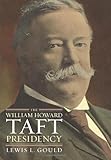

Health and Medical History of President
William TaftLived 1857-1930
Health and Medical History of President
William TaftLived 1857-1930
1776-1783
1812-1815
1846-1848
1861-1865
1898-1899
1917-1918
1941-1945
1950-1953
1964-1975
1990-1991
2001-2021

Taft was big almost from birth. It's clear, however, that he had an enormous appetite. MORE
Taft's size impressed some people, but often made him the butt of jokes MORE. Note: Judged solely by body mass index, a 5-foot 11-inch person weighing more than 290 pounds is severely obese.
Be careful. The web has much information about Taft's body size, a great deal of it stemming from an unfortunate error-filled article in a medical journal in 2013 10 that Dr. Zebra took pains to refute 11. Taft was not 6-feet 2-inches tall and there is no record he ever weighed more than 340 pounts.
The President never takes anything to drink at all, but is most profligate in making others imbibe. I do not see how he sits through these long dinners and banquets without taking enough merely to exhilarate him, but he takes no alcoholic liquors of any kind and seems to be much the better for it.Taft became a teetotaller in 1906, three years before becoming President. 12a MORE
Taft became non-compliant with his diet within a few years and his problem returned. In May 1908 he wrote his wife: "I have quit eating bacon in the morning for breakfast. I believe it gives me acidity of the stomach, and it is one of the most difficult things to digest I believe there are, if you take it as any substantial part of the meal. At least when I give it up, I cease to have trouble in the forenoon." 7e
Taft's voice, by the way, was tenor. This startled audiences who expected a deep bass from so big a man 14a.
The President was thrown from his horse this afternoon, but luckily not hurt. I am sure he is bruised and that he will be very sore to-morrow, but it was lucky that he was not killed. MORETaft had other problems with horses during his political career, including (1) the famous telegram from Secretary of War Elihu Root (see below) and (2) an angry exchange with his military aide at the Grand Canyon when Taft wanted to ride a horse down the trail into the Canyon. The aide, who "had no idea of letting him run the risk of breaking his neck and imposing the Vice President on the country as the Chief Executive," finally persuaded Taft it was not wise 1h. MORE
Within ten months, Taft had become very sensitive about the possibility he had gout, and tried hard to conceal the fact from his wife. He got angry at people who suggested his foot pain was gouty. The dialog between Taft and the physician who finally made the definitive diagnosis is priceless. MORE Taft's aides actively hid the gout from the public during his Presidency 1j. Taft continued to have attacks as President 17a and in later life wore a gout shoe 15b. He also developed gout stones in his urinary bladder (see below).
Taft was drenched with perspiration when he reached the Valley floor. His luggage was hours away, and there was no one within a hundred pounds of being able to lend him their clothes. "So while his clothes dried, the President went to bed and the affairs of State languished!" 18a.
During subsequent cross-country trips, sometimes giving 17 speeches a day, Taft wrote his wife almost daily about his voice (Sept. 17 - Oct. 30, 1911; May 13 - 19, 1912). 2i
Taft had several other mishaps in cars and trains during his public life MORE.
It is unclear if this was related to events Taft described to his wife three weeks later:
I had an attack of neuralgia in the side of my face especially in the region where the lower jaw hinges on the upper jaw. At first I thought it to be a tooth but I satisfied myself that this could not be. I called in Doctor Dr. Davis who is Dr. DeLaney's assistant and he gave me some medicine which seems to have moderated the pain much. It was difficult for me to eat and that you know is a terrible deprivation for me. 7rThe attack lasted about two days.
In December 1922 "the Chief Justice told his relatives and friends about a brief period of hospitalization in which gravel had been removed from his bladder" 2k. These were "30 or 40 calculi or uric acid origin" 7ab, i.e. a complication of gout.
Shortly before he died in 1930, it was disclosed that Taft had chronic cystitis 14b
Some believe Taft had Alzheimer disease 6a. But, given his coronary disease (see below), it is likely he had cerebrovascular disease, too.
By spring 1929, when he was 71, it was widely known that Taft's health was not good. Rumors occasionally arose that he might retire 2p. Sick as he was, Taft desperately wanted to hold his place on the Supreme Court. "I am older and slower and less acute and more confused," he wrote to his brother in November 1929. "However, as long as things continue as they are, and I am able to answer in my place, I must stay on the court in order to prevent the Bolsheviki from getting control." 2q
Taft finally resigned from the Supreme Court on February 3, 1930. Two doctors issued the the following bulletin: "For some years Chief Justice Taft has had a very high blood pressure, associated with general arteriosclerosis and myocarditis. ... He has no fevers and suffers no pain. His present serious condition is the result of general arteriosclerotic changes" 14b. After lingering in a coma, he died on March 8. MORE
- Do not let the length of this web page give you the impression that Taft was a sick man. This page is extensive because: (a) I have been researching Taft's medical history, and (b) Taft left an enormous amount of writing behind, giving historians an amazingly detailed view of his life. Furthermore, Taft "was fascinated by his ailments and would describe them with minute detail" 2c.
- Taft was "tall and heavy (though well-proportioned)." He weighed from 300 to 340 pounds most of the time he was in the White House. Before he was President, he once sent a telegram to Secretary of War Elihu Root, "Took long horseback ride today; feeling fine." The Secretary immediately cabled back: "How's the horse?" 20a.
- There were two instances in which, as President, Taft was called upon to make a medical judgment. Had he disagreed with his medical advisors in both cases, he would have been right 100% of the time. As it was, his average was only 50%.
- When Taft took ill in Kansas in 1917, many persons offered to come to his aid or help him travel. His former secretary cabled: "Remember that I am President of a railway about as long as a vermiform appendix and therefore I can arrange to get a private car movement for you 7ac.
- Apparently did not catch the flu in 1918, although his [adult] son did 15e
- The Tafts were the last residents of the White House to keep a milk cow. Named Pauline Wayne
(but also known as Wooly-Mooly), she grazed on the White House grounds. She developed brucellosis,
however, and had to be taken away
15f
in favor of another cow
21a.
She may have been taken to Chicago
7ad.
There is no record of any of the Tafts contracting the disease.
The Wilsons also harbored farm animals: eight sheep grazed the White House lawn as part of wartime conservation measures 21b. - In her later years, Taft's mother wore a cap to conceal baldness 7ae.
- Through his mother, Taft was a seventh cousin twice removed of Richard Nixon 22a.
- Butt, Archibald W. Taft and Roosevelt: The Intimate Letters of Archie Butt, Military Aide. Garden City, NY: Doubleday (1930). Volume 1: pages 1-432. Volume 2: pages 433-862.
a p.326 b p.172 c pp.70,75, 76 d p.76 e p.88 f p.39 g p.92 h pp.206-207 i p.189 j pp.543 k p.606 l p.670 m pp.764-765
Comment: Butt, an Army officer, was military aide first to President Theodore Roosevelt and then to President William Taft. On April 14, 1912, Butt was at sea aboard the Titanic returning from a European vacation that Taft had insisted he take. President Taft later said: "When I heard that part of the ship's company had gone down, I gave up hope for the rescue of Major Butt, unless by accident. I knew that he would certainly remain on the ship's deck until every duty had been performed and every sacrifice made that properly fell on one charged, as he would feel himself charged, with responsibility for the rescue of others." Taft was correct. Butt did not survive the sinking.
- Pringle, Henry F. The Life and Times of William Howard Taft: A Biography. New York: Farrar & Rinehart, Inc., 1939.
 a p.24 b p.3 c p.1072 d p.21 e p.35 f p.287 g p.39 h p.377 i pp.781, 784 j p.854 k p.1073 l p.857 m p.1001 n pp.1074-1078 o p.963 p p.1044 q p.967
a p.24 b p.3 c p.1072 d p.21 e p.35 f p.287 g p.39 h p.377 i pp.781, 784 j p.854 k p.1073 l p.857 m p.1001 n pp.1074-1078 o p.963 p p.1044 q p.967 - Taft, Horace Dutton. Memories and Opinions. New York: Macmillan, 1947.
a p.7
- Coletta, Paolo E. The Presidency of William Howard Taft. Lawrence, KS: University of Kansas Press, 1973.
a p.9
- Anderson, Judith Icke. William Howard Taft: An Intimate History. New York: W. W. Norton, 1981.
a p.???
- Bumgarner, John R. The Health of the Presidents: The 41 United States Presidents Through 1993 from a Physician's Point of View. Jefferson, NC: MacFarland & Company, 1994.
 a p.172 b p.167 c p.168
a p.172 b p.167 c p.168Comment: Devotes one chapter to each President, through Clinton. Written for the layperson, well-referenced, with areas of speculation clearly identified, Dr. Zebra depends heavily on this book. Dr. Bumgarner survived the Bataan Death March and has written an unforgettable book casting a physician's eye on that experience.
- Taft, William Howard. Papers of William Howard Taft. On file in the Library of Congress and selected other research libraries.
a WHT to Charles P. Taft, August 31, 1908 b WHT to Helen Herron Taft, September 24, 1905 c WHT to Helen Herron Taft, June 15, 1907 d WHT to N. E. Yorke-Davies, Dec. 9, 1905 e WHT to Helen Herron Taft, May 7, 1908 f WHT to Helen Herron Taft, Sep. 23, 1908 g WHT to Helen Herron Taft, Sept. 27, 1909 h WHT to Helen Herron Taft, Oct. 3, 1909 i WHT to Helen Herron Taft, Oct. 10, 1909 j WHT to Helen Herron Taft, Oct. 24, 1909 k WHT to Helen Herron Taft, Oct. 28, 1909 l WHT to Helen Herron Taft, Oct. 28/29, 1909 m WHT to Helen Herron Taft, Oct. 31, 1909 n WHT to Helen Herron Taft, Nov. 2, 1909 o WHT to George Blumer, Jan. 19, 1914 p WHT to Thomas Claytor, Aug. 1, 1926 q WHT to Helen Herron Taft, July 11, 1911 r WHT to Helen Herron Taft, Aug. 1, 1911 s WHT to Helen Herron Taft, Sept. 27, 1911 t WHT to Helen Herron Taft, July 29, 1912 u WHT to Helen Herron Taft, Aug. 16, 1912 v WHT to Helen Herron Taft, August 7, 1917 w WHT to George B. Edwards, September 8, 1917 x WHT to George Blumer, July 11, 1913 y WHT to Annie S. Taft, July 8, 1926 z WHT to Thomas Claytor, August 6, 1924 aa WHT to Thomas Claytor, Sept. 3, 1926 ab WHT to George Blumer, Jan. 2, 1923 ac Charles D. Norton to WHT, August 16, 1917 ad WHT to Helen Herron Taft, Oct. 30, 1911 ae WHT to Helen Herron Taft, February 11, 1902
- Hicks, F. C. William Howard Taft, Yale Professor of Law & New Haven Citizen. New Haven, CT: Yale University Press, 1945.
- Sotos, JG. Taft and Pickwick: sleep apnea in the White House. Chest. 2003;124:1133-1142.
- Levine, DI. Corpulence and correspondence: President William H. Taft and the medical management of obesity. Annals of Internal Medicine. 2013; 159: 565-570.
Comment: This error-filled article should be ignored.
- Sotos, JG. Corpulence and correspondence. Annals of Internal Medicine. 2014; 160: 580.
Comment: Refutes the unfortunate Levine article.
- Barker, Charles E. With President Taft in the White House. Chicago: A. Kroch and Son, 1947.
a pp.50-51
- Braisted, William C.; Bell, William Hemphill; Rixey, Presley Marion. The Life Story of Presley Marion Rixey: Surgeon General, U. S. Navy 1902-1910: Biography and Autobiography. Strasburg, VA: Shenandoah Publishing House, Inc., 1930.
a p.265
Comment: Dr. Rixey was the White House physician for both William McKinley and Theodore Roosevelt.
- Marx, Rudolph. The Health of the Presidents. New York: GP Putnam's Sons, 1960.
 a p.300 b p.306 c pp.306-307 d p.305
a p.300 b p.306 c pp.306-307 d p.305Comment: Tells great tales, but the book does not cite its sources.
- Ross, Ishbel. An American Family: The Tafts - 1678 to 1964. Cleveland, OH: World Publishing Co., 1964.
a p.221 b pp.327-328 c p.326 d p.317 e p.313 f p.261
- Taft, Mrs. William Howard (Helen Herron Taft). Recollections of Full Years. New York: Dodd, Mead & Company, 1914.
a p.365
- Bromley, Michael L. William Howard Taft and the First Motoring Presidency. Jefferson, NC: MacFarland, 2003.
 a p.350 b p.183
a p.350 b p.183 - Sargent, Shirley. Yosemite's Famous Guests. Yosemite, CA: Flying Spur Press, 1970.
a pp.20-21
- Bromley, Michael. Personal communication, Email to Dr. Zebra Sept. 15, 2005. Bromley wrote: "Taft never drove. He always had a driver. His driver in Washington in the Twenties was named Tom Ford." It is not clear, however, when Ford was hired or if he was behind the wheel when this incident occurred.
Comment: Bromley wrote: "Taft never drove. He always had a driver. His driver in Washington in the Twenties was named Tom Ford." It is not clear, however, when Ford was hired or if he was behind the wheel when this incident occurred.
- Boller, Paul F. Jr. Presidential Anecdotes. New York: Oxford University Press, 1981.
 a p.214
a p.214 - Parks, Lillian Rogers. My Thirty Years Backstairs at the White House. New York: Fleet Publishing, 1961.
a p.119 b p.152
Comment: This book stayed on the New York Times best-seller list for 26 weeks, prompting Jacqueline Kennedy to require all staff at the White House to sign a pledge agreeing not to write about their experiences (NY Times, page B8, Nov. 12, 1997). Parks's mother, a maid at the White House from 1909-1939, had actually been encouraged by Eleanor Roosevelt to write and publish a memoir (p260).
- Montgomery-Massingberd, Hugh (ed). Burke's Presidential Families of the United States of America. 2nd ed. London: Burke's Peerage Limited, 1981.
 a p.430
a p.430Comment: Maps -- in great detail -- the ancestors and descendants of American presidents through Ronald Reagan. They would have had an exhausting time with President Obama's family tree! MORE









